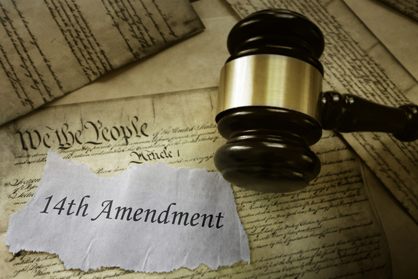
Hundreds of Law Professors Defend Biglaw in Legal Fight Against Trump’s Executive Orders
In an unprecedented show of solidarity, over 300 law professors from leading American law schools have filed an amicus brief condemning former President Donald Trump’s executive orders targeting major law firms. The professors argue that the orders—issued in retaliation for the firms’ clients, diversity initiatives, and legal work opposing Trump policies—represent a dangerous abuse of executive power and a direct violation of constitutional protections.
Trump’s Retaliatory Executive Orders
The controversy centers around a series of Trump-issued executive orders that bar federal agencies from contracting with law firms that:
- Represent clients opposing Trump administration policies;
- Implement diversity, equity, and inclusion (DEI) programs that he deems “woke”; or
- Participate in litigation or advocacy seen as hostile to the former president’s political agenda.
These orders have been challenged in federal court by WilmerHale, Perkins Coie, Jenner & Block, and other firms. The plaintiffs argue the orders violate First Amendment rights, due process, and longstanding principles of client confidentiality and legal ethics.
The Professors’ Brief: A Historic Legal Rebuttal
The amicus brief, filed in support of the law firms’ challenge, was signed by professors from nearly every top-tier U.S. law school, including Harvard, Yale, Stanford, Columbia, NYU, and the University of Chicago. The professors argue that Trump’s orders:
- Violate the First Amendment by penalizing firms for the viewpoints they express through advocacy and representation;
- Undermine the rule of law by discouraging legal professionals from taking on controversial or unpopular clients;
- Set a dangerous precedent for political retaliation against attorneys and the institutions of justice.
“This is not just about law firms,” said one professor who helped organize the brief. “It’s about protecting the legal profession from authoritarian overreach and preserving the right of all Americans to receive legal representation—even when that representation challenges those in power.”
Biglaw’s Chilling Dilemma: Serve Justice or Survive Retaliation?
Some firms have reportedly altered their client intake procedures or scaled back DEI programs in response to the orders, drawing concern from legal ethics scholars and civil rights advocates. While others, like Perkins Coie and WilmerHale, have chosen to fight the orders in court, the pressure is immense.
The executive orders have already cast a chilling effect across the legal sector, particularly among firms handling voting rights, immigration, and environmental justice matters.
The Larger Legal Implications
Legal analysts say this battle is about far more than contracts. If the executive orders are upheld, it could set a precedent allowing future presidents to punish firms for political dissent—a concept that would erode the independence of the legal profession.
The amicus brief highlights these dangers, arguing that the orders are unconstitutional and politically motivated. The professors urge the court to invalidate them to preserve the neutrality of legal institutions swiftly.
What’s Next?
The lawsuit is currently pending in federal court, with preliminary injunction motions expected to be heard in the coming months. The professors’ brief adds intellectual and moral weight to the case, signaling that Trump’s legal overreach faces strong resistance not only from firms but from the academy itself.
Observers are watching closely, as the outcome may shape the boundaries of executive power, attorney independence, and political retaliation for years to come.
FAQs
What is the amicus brief filed by law professors about?
Over 300 law professors filed an amicus brief opposing Trump’s executive orders that ban federal contracts with firms representing disfavored clients or supporting DEI. They argue the orders are unconstitutional and threaten the independence of the legal profession.
Which law firms are challenging Trump’s executive orders?
Major law firms including WilmerHale, Perkins Coie, and Jenner & Block have filed lawsuits against the executive orders, arguing they violate First Amendment rights and due process protections.
What constitutional issues are involved?
The primary issues involve the First Amendment (freedom of speech and association), retaliation against political viewpoints, and due process. The professors argue the orders are a form of politically motivated punishment.
Why is this significant for the legal profession?
If upheld, Trump’s executive orders could set a precedent where the executive branch punishes firms for their clients, undermining the attorney-client relationship, discouraging advocacy, and chilling speech.
Have law professors united on legal issues like this before?
While law professors occasionally sign joint statements or briefs, a coalition of this size and prominence is rare—underscoring the gravity of the constitutional threats posed by the executive orders.














































